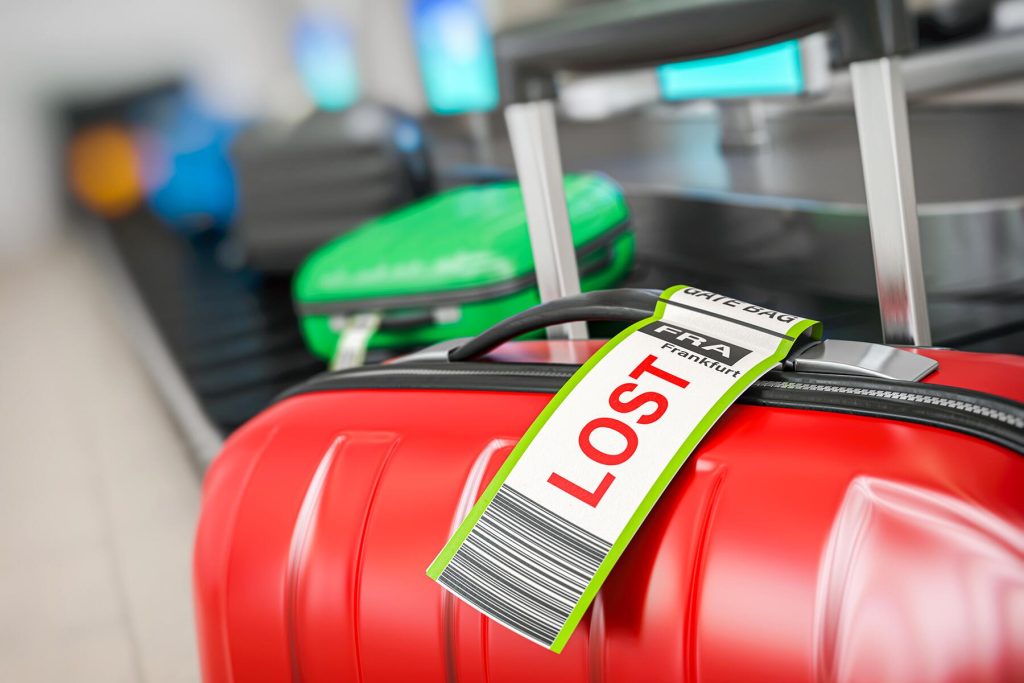There’s a grain of truth to worries over the “bag tag scam,” but it might a small grain
There’s a travel scam warning going around the internet right now: You should keep your baggage tags on your bags until you get home, then shred them, because scammers are using luggage tags to file fraudulent claims for missing baggage with the airline.
But should you worry about this?
Where Did the ‘Bag Tag Scam’ Originate?
The scam seems to originate from a Reddit thread in which a poster claiming to be a baggage claims manager at Delta encouraged passengers to wait until they get home to throw out their used bag tags.
There’s a grain of truth to that. Most airlines require that passengers whose bags have been delayed or damaged present their baggage claim receipt in order to initiate a damage report. Some airlines have moved this process online, so that someone in the know who picked up a discarded baggage claim receipt or bag tag in baggage claim could initiate a report with just the information from the tag, such as the passenger name, confirmation number, and itinerary.
Should You Worry About the ‘Bag Tag Scam’?
Here’s where it gets tricky. If a scammer is successful in claiming compensation for missing items from a bag that was never theirs, and they get a payout, it’s the airline that gets scammed, not the passengers. And that only becomes an issue if that passenger also happens to have a bag lost (not delayed, but lost completely) on a subsequent flight.
Continue Reading Article After Our Video
Recommended Fodor’s Video
When an airline takes a claim for baggage that has been completely lost, there are a lot of legal disclosures—one of which is a question about whether or not the person has ever filed a loss or damage claim with any airline (the airlines share details between them when they suspect serial fraudsters). If you complete one of those forms, answer “no,” and then you’re found to have a previous claim that was filed by a scammer, then your claim will be denied (at least until you can convince the airline it wasn’t you who filed the previous claim).
That’s really threading the needle as far as risk to individual passengers—the number of bags that are reported truly, unrecoverably lost (including fraudulent claims) is minuscule compared to the millions of bags airlines check and return to their passengers on each flight without incident.
What Do Airlines Say About the ‘Bag Tag Scam’?
The airlines are peculiarly silent on the issue. We checked websites for most major airlines, and not one of them requests that passengers keep their bag tags or claim checks secure following their flights. If this were a matter of particular concern, they’d be giving passengers that advice themselves. And when they do, they have better communication channels to disseminate that information than Reddit.
Whenever airlines make procedural changes, like moving the baggage report process online, they typically also analyze the impact on opportunities for fraud. And fraud is certainly frustrating for front-line workers and managers to watch happen, particularly if they’re unaware that other workers in the organization are also monitoring fraud and tweaking policies if it makes financial sense.
More troubling, however, is the impact on how travelers receive information about these types of scams.
Someone doing a quick Google search for whether the airline bag tag scam is legit would get an AI-generated answer from Google. “Yes, it’s legit,” says Google, with a link to several news articles about how the scam works. But each of those articles references the same Reddit post, from the same anonymous, unverified Delta employee. So, anybody doing an internet search to find out if this problem really exists gets a resounding “yes” from the world’s largest search engine, even though that “yes” is really one unverified Reddit user’s opinion.
Multiple inquiries to Delta requesting clarification were not returned.

